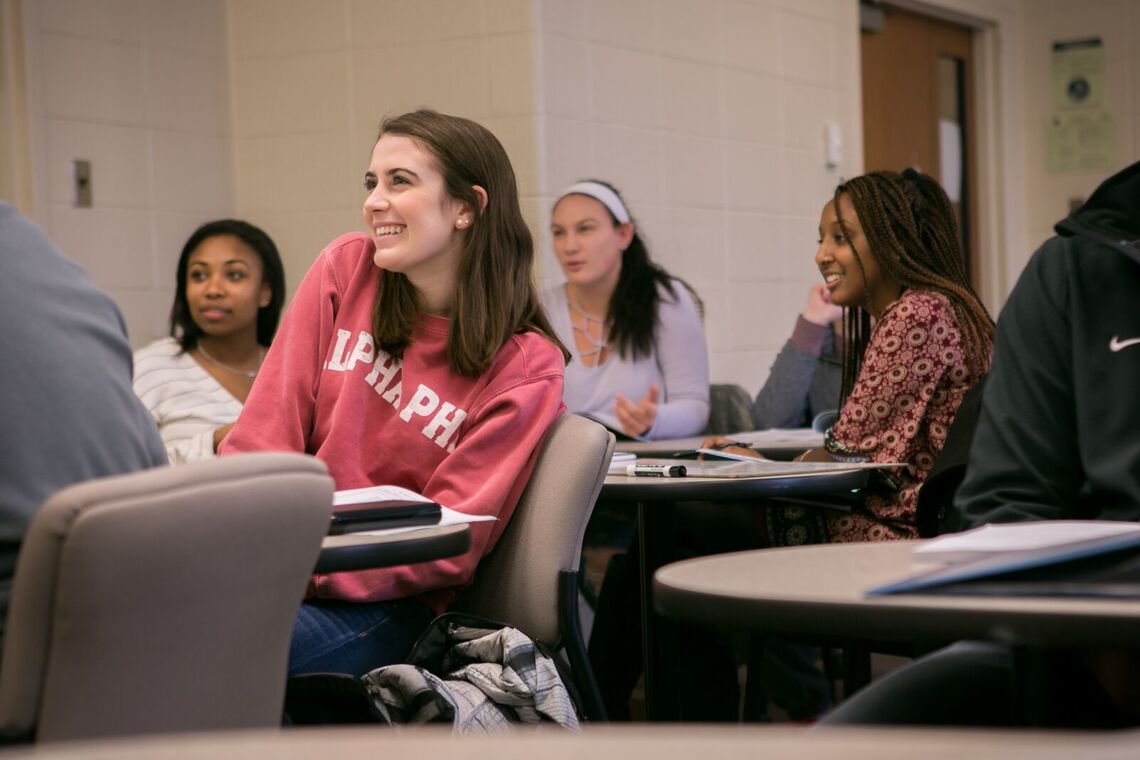Wednesday June 6th, 2016

Suzanne Ruder teaches organic chemistry to large classes – 200 or more students! – at Virginia Commonwealth University. In 2013 she was the recipient of the University’s highest teaching award. The following is an excerpt from her University Convocation speech that year.
I have always found it curious that most of us who teach at the university level are generally thrust into the classroom with little to no formal education or training about how to teach. With a passion for our subjects, but little information about how to actually teach it, we mostly resort to teaching how we were taught. And that is exactly how I began my teaching career, by teaching how I was taught. I entered my first classroom filled with 150 apprehensive organic chemistry students, who were more than likely just as terrified as I was that first day. Just as I had been taught, I proceeded to lecture with warp speed, keen to impart my knowledge onto the students. Students frantically rewrote my copious notes on the chalkboard, and attempted to write down everything I said. I covered all the material on the syllabus, and figured that the students understood it all, since I had told them all they needed to know, and few students asked questions during class time.
I happily improved on my lecture style for about 15 years, when I was struck and ultimately inspired by a comment from a scientist at a local pharmaceutical company. This scientist told a group of our visiting summer research students, that the most important skills for a prospective employee are 1) the ability to work in teams and 2) the ability to solve problems…two things, he said, that their academic experience did not prepare them for! As I reflected on my own classes, it dawned on me that he was absolutely right. My lecture classes taught the students nothing about teamwork, communication or the ability to think outside the box to solve problems which may not have one correct answer.
So I began anew, challenging myself to learn about teaching and learning, to discover how to engage the students and guide them to discover concepts together. My goal now is to help students learn so called ‘soft skills’ that are so important in the workforce, in addition to helping students gain a conceptual understanding of organic chemistry, rather than memorize lots of facts. My new guiding principle can be found in a quote by A.H. Johnstone, “Learning is not the transfer of material from the head of the teacher to the head of the learner intact. Learning is the reconstruction of the material, provided by the teacher, in the mind of the learner. ”
These days my classroom, now grown to 250 students, is anything but a room filled with quiet students passively listening to my lectures. Instead students are thinking, working, discovering and engaging in animated conversations about organic chemistry concepts as they work together to solve problems. Some days you can even hear students cheering as they discover they have solved a problem. Every day is different and exciting, as I constantly assess what students are learning and what they are having trouble understanding in order to redirect and focus their work. It is rare anymore for students to pack up and race out of the classroom. Instead they linger on, discussing concepts and clarifying their answers with their classmates. My hope is that maybe, just maybe, organic chemistry has silently crept onto at least a few lists of students’ most favorite college courses.